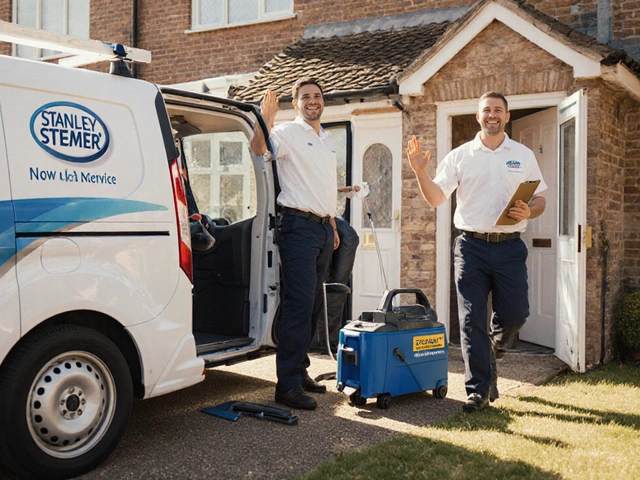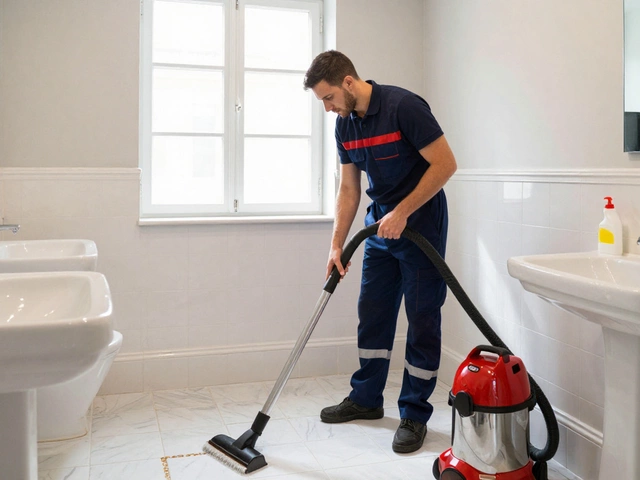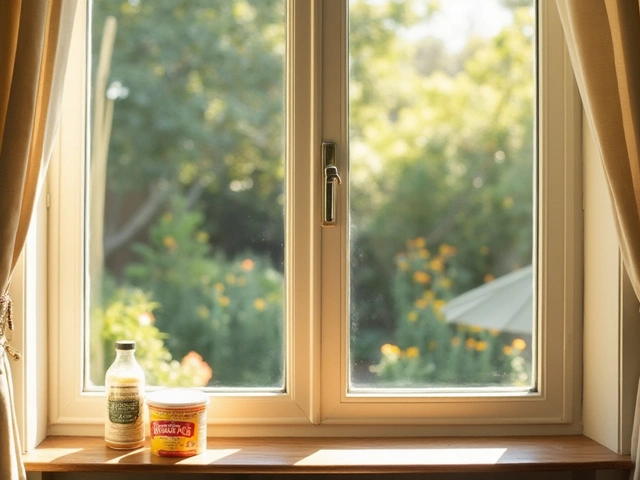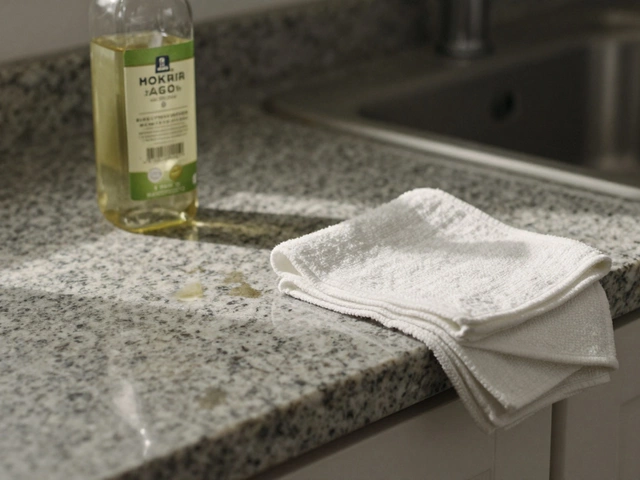Did you know that the secret behind those sparkling café windows in old movies is often just vinegar and water? Yeah, I was surprised, too! For decades, people have ditched fancy sprays for this pantry staple. But here’s the thing: Some folks swear by pure, straight vinegar and others say you should never go full vinegar. And if you have kids like mine, who love to doodle on windows with everything from crayons to jam-sticky fingers, you end up with a front-row seat to the window cleaning debate.
How Vinegar Actually Works for Window Cleaning
Vinegar isn’t just for salad dressings – white distilled vinegar (that cheap, colorless one with a sharp smell) is made up of about 5% acetic acid. That weak acid is just enough to break down minerals, grease, sticky fingerprints, and even those annoying streaks left by rain or hard tap water. When you swipe a vinegar-soaked cloth across glass, you’re upending mineral deposits and gunk that ordinary soap can leave behind. The science is pretty simple: vinegar dissolves alkaline substances. That covers things like scale from hard water, smudges made of skin oil, and traces of cleaner residue.
But – and here’s where a lot of folks get tripped up – using straight, undiluted vinegar can sometimes backfire. Pure vinegar can cut through grime like a champ, but it’s also harsh enough to etch sensitive surfaces. You probably won’t ruin modern glass windows with it, but it can wear down some window seals, aluminum frames, or older putty over time. And because it doesn’t evaporate as fast as store-bought cleaners that are loaded with alcohol, you run a higher risk of leaving behind streaks if you don’t wipe fast enough. Imagine racing your kid at a water gun fight, but you’re armed with a squeegee and the punishment for losing is having to see every streak in sunlight forever. Yeah, no thanks.
I’ve actually tried using only vinegar a couple times. If you’re not careful and use more than the glass can handle, you’ll be sniffing that sharp, eye-watering odor for hours. Not fun if your kids hate strong smells, or if you’re cleaning the bedroom window and the vinegar fog lingers as you try to sleep. Here’s a little-known fact: the acetic acid in vinegar is corrosive enough that window manufacturers have sometimes warned their customers not to rely on it for long periods, especially on insulated or gas-filled panes. It can, over time, affect the soft metal spacers between double panes.
If you want to see how much vinegar can remove, line up a pane of glass and spray half with just water and the other half with straight vinegar. Take a black T-shirt, hold it behind the pane, and look at it in the sunlight. The difference in clarity is pretty huge, but you’ll also notice that the vinegar side dries slower and can leave drip marks if you don’t polish it off quickly. So while you COULD use pure vinegar, it’s not always best if you want to avoid streaks and odors.
Here’s a quick data table to show how vinegar stacks up against other popular cleaners:
| Cleaner | Removes Grease | Prevents Streaks | Safe for All Materials | Cost per Use |
|---|---|---|---|---|
| Straight Vinegar | Yes | Possible if used right | No (can harm some seals/frames) | Very Low |
| Diluted Vinegar | Yes | Better | Usually safe | Very Low |
| Commercial Ammonia Spray | Yes | Excellent | No (can harm tint/films) | Medium |
| Soap and Water | Decent | Not great (can add film) | Safe | Low |
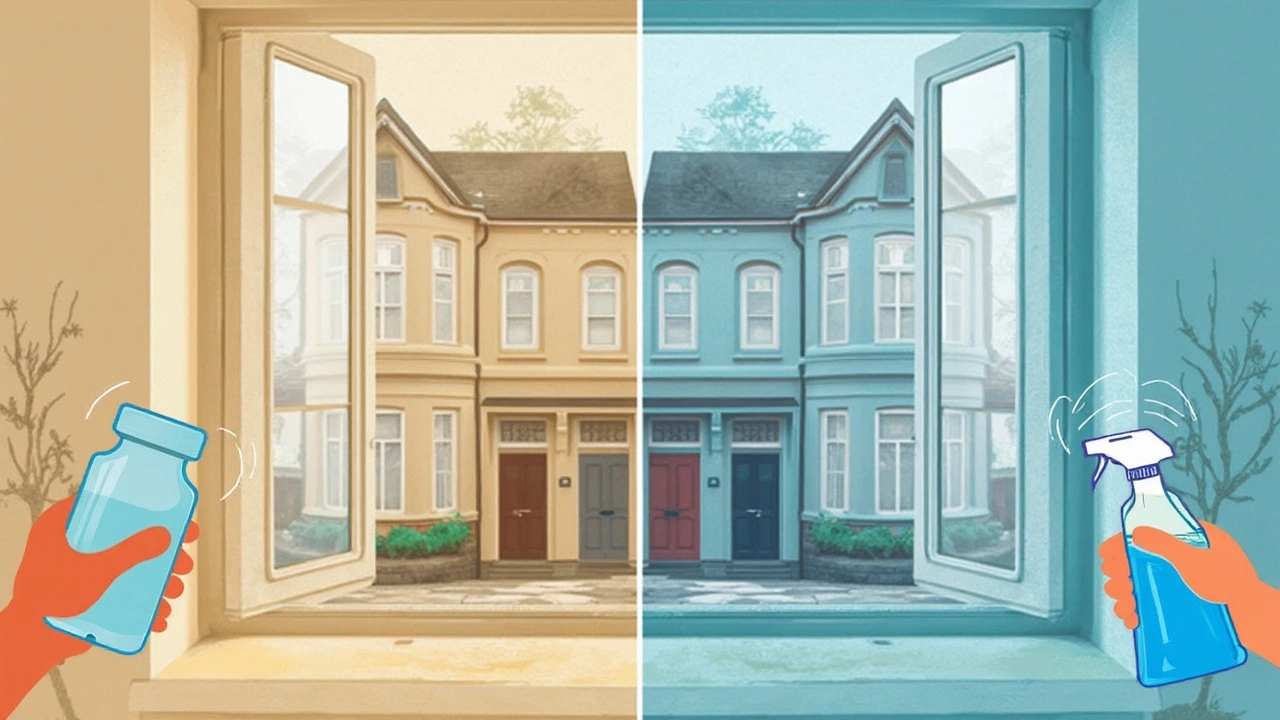
Best Methods to Use Vinegar for Window Cleaning
If you want to go the old-school route, here are some practical tips that changed the game for me (and for my kids when they decide to "help"). The golden rule: don’t clean windows in direct sunlight. Sun heats up the glass, dries the solution too fast, and leaves streaks – even with the best cleaner. Choose a cloudy day or wait for the afternoon shade to hit your living room.
Next, dilution is your friend. Straight vinegar is strong, but for daily or monthly chores, mixing it with water (about one part vinegar to one part water) works just as well and rarely irritates your nose or eyes. I usually fill a spray bottle halfway with vinegar and halfway with tap water. Give it a little swirl and you’re set.
Spray that mix directly onto the glass – but if your windows are extra grimy (hello, Callum’s ketchup handprints), you can go full vinegar at first, just to cut through the gunk. Let it sit for a minute (don’t let it dry), and wipe it off with a microfiber cloth or coffee filter. Seriously, don’t use paper towels. They shed lint like a golden retriever on laundry day and just add more mess. Microfiber grabs every last bit of dust and doesn’t leave streaks.
When the job is almost done, a dry squeegee is your ticket to a truly *streak-free* finish. Start at the top and drag it down in even strokes, wiping the blade after each pass. Corners and edges can collect dirt and drips, so run an old cotton rag around the frame or sill to catch any mess before it dries.
Have stubborn stains (maybe bird droppings or old tape marks)? Hit them up with a little straight vinegar on a sponge, let it soak, then scrub gently. It won’t always get everything (nothing short of razor blades cures permanent marker, trust me), but it beats most store-bought chemicals.
Some windows, especially those with plastic or specialty coatings, don’t like acid. If you’re unsure, test a hidden corner before you go wild. And don’t use on stone sills or surfaces near marble – vinegar etches those for life.
- Pick an overcast or shady time to clean your windows
- Mix equal parts vinegar and water for most jobs
- Use pure vinegar only on extreme gunk, rinse well afterward
- Microfiber cloths or coffee filters give the best polish
- Finish with a squeegee for no streaks
If you’ve got little ones, keep the bottle out of reach – straight vinegar won’t kill them, but getting it in their eyes will ruin anyone’s day. And if you have pets, the smell might drive cats off windowsills for a bit, but they’ll come back. This stuff is way safer than harsh ammonia sprays, which can trigger headaches or even respiratory problems in kids.

The Truth About Streak-Free Glass and Eco-Friendly Cleaning
The real draw of vinegar is that it’s natural and leaves no chemical residue. Unlike blue commercial cleaners, you know exactly what’s going onto your glass. For parents of kids with allergies like mine, or if you just want to avoid synthetic stuff, vinegar is a no-brainer.
But let’s set the record straight: vinegar won’t kill all germs or viruses on glass. For COVID or flu concerns, you want a disinfectant. Vinegar is great for shine, not for sterilization. Still, most window dirt isn’t dangerous, just ugly, so unless you're running a hospital, vinegar is just fine for everyday use.
Now, about streaks. The number one reason people get mad at vinegar isn’t the fault of the vinegar at all – it’s usually the water. Hard water in the bottle or tap leaves minerals when it dries, so if you’re in a hard water area, use filtered or distilled water in your mix. Try it once, and you’ll see – the glass literally sparkles, and there’s zero residue.
If you’re still seeing faint streaks, change your wiping direction each time. I go horizontal on one side and vertical on the other – that way, if there are lines, you can tell which side needs more work. A weird hack? Polish with a crumpled-up sheet of old newspaper. The ink actually helps buff out any marks, and kids love helping when they get to "draw" on the glass with newsprint.
On the eco front, vinegar is biodegradable. It won’t harm the soil if it drips onto your garden outside. Compare that with ammonia cleaners or sprays with synthetic fragrance, which can irritate the lungs, pollute water, or just make the family dog sneeze for hours. Cheap and safe for the planet? That’s a win in my book.
One thing to remember: commercial window cleaning companies sometimes skip vinegar for professional jobs, but it’s not because it doesn’t work. It’s because time is money, and vinegar dries slower than alcohol-based sprays. If you’re not rushing through skyscraper panes or cleaning dozens of homes a day, the few extra minutes are totally manageable. Plus, you skip all those plastic bottles piling up under the sink.
So what’s the bottom line? You clean windows with vinegar, sure – but diluted works just as well, skips the eye-watering smell, and is gentler on your frames, seals, and your nose. With the right cloth, a simple squeegee, and a little patience, your glass will gleam and you’ll skip the headaches and chemicals. And hey, in my house, clean windows mean more daylight for homework, less smudge for dog-door spotting, and a little less chaos during the next round of "Guess what Damon spilled on the windows now." Vinyl frames, old sills, sunroom storms – vinegar can handle most of what life throws at our glass, with half the drama and twice the shine.
